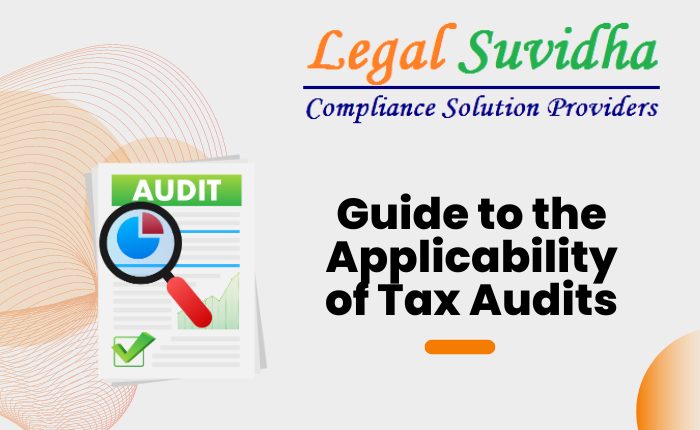Tax audits play a crucial role in the examination and verification of a taxpayer’s financial records and transactions to ensure accurate reporting of income and adherence to tax laws. Conducted by tax authorities, these audits aim to achieve several key objectives, including ensuring compliance, detecting errors and discrepancies, preventing tax evasion, and enhancing tax revenue collection.
Objectives
1: Ensuring Compliance
The primary objective of a tax audit is to ensure that taxpayers have fulfilled their tax obligations correctly and honestly, in accordance with the relevant tax laws. By scrutinizing financial records and other relevant information, tax authorities can ascertain whether taxpayers have accurately reported their income and paid the correct amount of taxes.
2: Detecting Errors and Discrepancies
Tax audits are instrumental in identifying any errors, omissions, or discrepancies in a taxpayer’s financial statements, income declarations, deductions, exemptions, and other tax-related information. By detecting these inaccuracies, tax authorities can rectify them and ensure a fair and accurate representation of a taxpayer’s financial position.
3: Preventing Tax Evasion
Tax evasion, the deliberate act of underreporting income or inflating deductions to reduce tax liability, poses a significant challenge to tax authorities. Tax audits serve as a robust deterrent against tax evasion by thoroughly examining taxpayers’ financial records and holding non-compliant individuals accountable for their actions.
4: Enhancing Tax Revenue Collection
One of the essential outcomes of tax audits is the recovery of unpaid taxes, penalties, and interest owed by non-compliant taxpayers. By conducting audits, tax authorities can identify discrepancies and enforce the collection of taxes owed, thereby bolstering overall tax revenue for the government.
Who is liable to undergo a tax audit?
Certain individuals and entities are required to undergo tax audits as mandated by the tax laws of their country. The criteria for mandatory tax audits depend on various factors:
- Section 44AB for Businesses and Professions: Businesses with total sales, turnover, or gross receipts exceeding Rs. 1 crore and professionals with gross receipts exceeding Rs. 50 lakhs are compulsorily required to get their accounts audited. However, businesses opting for the presumptive taxation scheme under section 44AD are exempted from tax audits if their total sales or turnover do not exceed Rs. 2 crores. Additionally, the threshold limit for businesses can increase to Rs. 10 crores if cash receipts and payments during the year do not exceed 5% of the total receipt or payment.
- Section 44ADA for Professionals: Under Section 44ADA, professionals who opt for the presumptive scheme but declare profits below 50% of their total turnover/gross receipts, and whose total income exceeds the income not chargeable to tax, are subject to tax audits. This scheme allows specified professionals to pay tax on presumed profits at 50% of gross receipts, reducing their compliance burden.
Recent Revisions in Presumptive Taxation Limits:
In the Budget 2023, the presumptive taxation limits were revised to extend the benefits of simplified taxation to a larger group of small businesses and professionals. The limits for Sec 44AD increased from Rs. 2 crores to Rs. 3 crores for small businesses, and for Sec 44ADA, the limits increased from Rs. 50 lakhs to Rs. 75 lakhs for professionals like doctors, lawyers, engineers, etc.
Section 44AE for Goods Carriage Businesses:
Individuals or entities engaged in the business of plying, hiring, or leasing goods carriages may be eligible for presumptive taxation under Section 44AE. To qualify, they must own not more than 10 goods carriage vehicles during a financial year. Those opting for presumptive taxation can estimate their income at Rs. 7,500 per month per vehicle owned, irrespective of the type of goods vehicle. However, those not opting for the presumptive scheme must maintain account books and get them audited as per Sections 44AA and 44AB to ensure compliance with the Income Tax Act.
Section 44BB and 44BBB for Non-resident and Foreign Companies:
Tax audits are applicable to non-resident individuals or entities opting for the presumptive scheme under Section 44BB and foreign companies choosing the scheme under Section 44BBB. If their declared income falls below the prescribed rate (i.e., less than 10% of the amount paid or payable to the taxpayer or any person on his behalf), a tax audit becomes mandatory.
Section 44AD for Specific Cases:
Under Section 44AD, tax audits are applicable in specific cases such as when taxpayers opt out from presumptive taxation and their income exceeds the maximum amount not chargeable to tax in the subsequent 5 years, or when the total cash receipts are less than 5% of total turnover, and the taxpayer’s declared income is less than 6% or 8% of total turnover.
Conclusion:
Tax audits are indispensable tools for tax authorities to ensure tax compliance, detect and rectify errors, prevent tax evasion, and enhance tax revenue collection. The mandatory tax audit requirements for businesses, professions, and specific schemes are designed to promote a fair and transparent tax system, fostering an environment of trust and compliance among taxpayers. The recent revisions in presumptive taxation limits further aim to ease the burden for small businesses and professionals while strengthening the overall tax ecosystem.
If You have any queries then connect with us at [email protected] or [email protected] & contact us & stay updated with our latest blogs & articles


![Received an Income Tax Notice in India? Don’t Panic — Here’s Exactly What to Do [2025 Guide] 1 Income Tax Notice](https://legalsuvidha.com/wp-content/uploads/2025/12/Income-Tax-Notice.png)
![Cyber Crime FIR in India: How to File Complaint for Online Fraud, Banking Fraud & Digital Harassment [2025 Guide] 2 Cyber Crime Complaint](https://legalsuvidha.com/wp-content/uploads/2025/12/Cyber-Crime-Complaint.png)
![Trademark Infringement in India: How to File Legal Action & Protect Your Brand [2025 Guide] 3 Tradenark Infrigement](https://legalsuvidha.com/wp-content/uploads/2025/12/Tradenark-Infrigement.png)
![Property Title Verification in India: How to Check Clear Title in 7 Steps [Avoid Property Fraud – 2025 Guide] 4 Property Titles Verification](https://legalsuvidha.com/wp-content/uploads/2025/12/Property-Titles-Verification.png)



